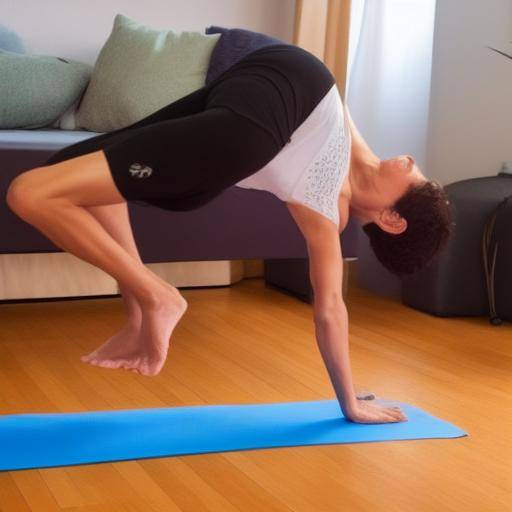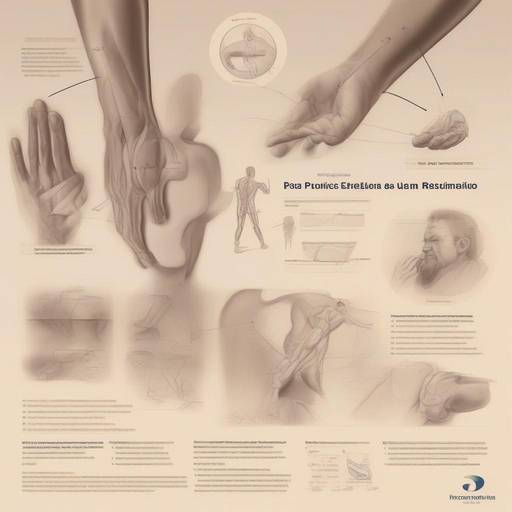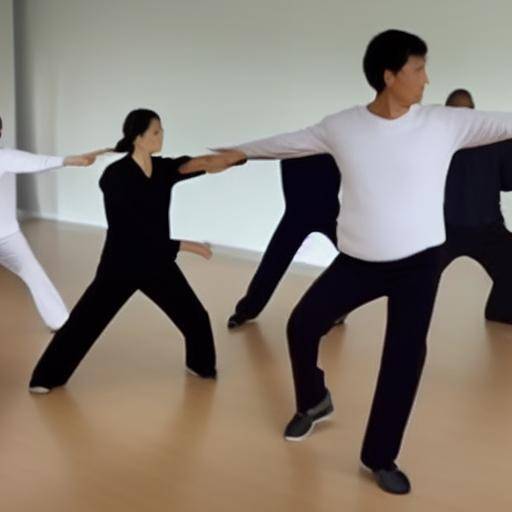
Self-discipline is a fundamental aspect in everyday life that can have a significant impact on physical health. From managing stress to adopting healthy habits, self-discipline plays a crucial role in physical well-being. In this article, we will explore in detail how self-discipline influences health, the benefits it entails and how to promote it to improve our quality of life.
Introduction
Self-discipline is the art of having control of our actions, emotions and thoughts in pursuit of long-term goals. In the context of physical health, self-discipline is manifested in the adoption of healthy habits, the management of time for exercise and the ability to resist temptations that could harm our health. Learning to cultivate self-discipline is essential to maintain a healthy and balanced lifestyle.
History and Background
Self-discipline has been a crucial concept throughout the history of humanity. From philosophical practices in ancient Greece to religious and spiritual teachings in various cultures, self-discipline has been valued as a fundamental virtue for personal growth and well-being. In different historical periods, self-discipline has been exalted as a means of achieving harmony and comprehensive health.
In the modern era, self-discipline remains a relevant issue. With the advancement of psychology and neuroscience, it has deepened its understanding of the mechanisms that underlie self-discipline and its impact on health-related decision-making. The incorporation of self-discipline in promoting healthy lifestyles has gained special relevance in the contemporary context.
Analysis in Deep
Self-discipline is crucial in promoting healthy habits. The ability to resist the temptation of harmful behaviors for health, such as excessive consumption of unhealthy foods or sedentarism, is a fundamental element in self-discipline. Scientific studies have shown that the ability to self-manage and self-control significantly impacts on long-term healthy habits.
Self-discipline not only relates to the adoption of eating and exercise habits, but also influences stress management and the improvement of sleep quality. Individuals with high self-discipline tend to implement effective strategies to reduce stress, such as meditation or physical activity. In addition, the ability to maintain a regular and repair sleep routine is closely linked to self-discipline.
Comprehensive review
In order to promote self-discipline for physical well-being, it is essential to implement strategies that strengthen the strength of will and self-control. The establishment of realistic and achievable goals, the development of concrete action plans and the identification of triggers that hinder self-discipline are some of the key steps to improve personal control.
In addition, it is essential to create favourable environments that facilitate healthy behaviour. The influence of the social and cultural environment plays a decisive role in the ability to maintain self-discipline. The support of friends, family and communities that promote a healthy lifestyle contributes significantly to strengthening self-discipline in the pursuit of physical well-being.
Comparative analysis
By comparing self-discipline, physical well-being and healthy habits, it is clear that these concepts are interconnected in the search for a balanced and healthy life. Self-discipline is the driving force behind the adoption and sustainability of healthy habits, while physical well-being is the tangible result of the constant practice of self-discipline.
Healthy habits, such as a balanced diet, regular physical activity and self-care, are concrete manifestations of self-discipline in daily life. In this regard, self-discipline is closely associated with the ability to make conscious and responsible decisions that have a positive impact on physical health.
Practical Tips and Accessible Recommendations
To promote self-discipline for physical well-being, concrete strategies can be implemented to strengthen self-control and personal management. Some practical recommendations include:
- Establish realistic and specific goals related to physical health.
- Develop a detailed action plan that includes concrete steps to achieve the proposed goals.
- Identify and avoid situations that may hinder self-discipline, such as stressful environments or harmful habits.
- Find the support of friends, family or health professionals to maintain motivation and commitment to self-discipline.
- Practice stress management techniques, such as meditation, yoga or conscious breathing, to strengthen the capacity of self-control and emotional regulation.
Industrial Perspectives and Expert Reviews
Several experts in psychology, nutrition and physical health agree on the importance of self-discipline for the maintenance of a healthy lifestyle. The ability to resist immediate temptations for long-term goals is a key element in achieving and maintaining physical and emotional well-being.
According to experts, the key to fostering self-discipline lies in strengthening the will and continued practice of health-promoting behaviour. The incorporation of healthy habits in everyday life, the establishment of routines that promote self-care and effective stress management are fundamental aspects that are enhanced by self-discipline.
Case Studies and Practical Applications
Throughout different contexts and populations, many cases of individuals have been documented that, through the practice of self-discipline, they have managed to transform their physical health significantly. From sustained weight loss to the adoption of active and healthy lifestyles, success cases show the positive impact that self-discipline can have on long-term physical health.
These exemplary cases reflect the importance of self-discipline as a determining factor in changing habits and promoting health. The constant practice of self-discipline, supported by favourable environments and adequate resources, can generate significant results in terms of physical well-being and quality of life.
Future Trends and Predictions
As research progresses in the field of psychology, neuroscience and health, it is expected that it will be deepened in understanding the mechanisms that underlie self-discipline and its relation to physical health. New strategies and approaches to foster self-discipline are expected to emerge, as well as the integration of technology and artificial intelligence to support healthy decision-making.
In addition, education in self-discipline and health is expected to become a key pillar in health promotion and disease prevention programmes. The incorporation of strategies to strengthen self-discipline from early ages, both in educational and family environments, could have a significant impact on the health of future generations.
Conclusion
In short, self-discipline plays a crucial role in the promotion and maintenance of physical well-being. From adopting healthy habits to effective stress management, self-discipline is a determining factor in achieving a balanced and healthy life. By strengthening self-control and conscious decision-making, it is possible to cultivate a lifestyle that promotes physical health and integral well-being.
Frequently asked questions
How can I strengthen my self-discipline to improve my physical health?
Strengthening self-discipline requires practice and determination. It is advisable to start by setting realistic goals and developing concrete action plans. Identifying and avoiding situations that hinder self-discipline, as well as seeking support from nearby people, can be of great help.
What is the impact of self-discipline on the adoption of healthy habits?
Self-discipline is essential for the adoption of long-term healthy habits. It allows to resist the temptation of behaviors harmful to health and promotes the practice of beneficial behaviors, such as regular physical activity and a balanced diet.
What are some effective strategies to manage stress through self-discipline?
Practice stress management techniques, such as meditation, yoga or conscious breathing, can strengthen self-discipline in stress management. Establishing routines that include moments of relaxation and self-care, as well as identifying and reducing sources of stress, are key steps to strengthen self-discipline in this area.
What is the relationship between self-discipline and sleep quality?
Self-discipline directly influences sleep quality. Maintaining a regular and repairing sleep routine requires self-discipline to set consistent schedules, avoid stimuli that interfere with rest and prioritize self-care in this regard.
How can the social environment influence the practice of self-discipline to maintain physical health?
The social environment plays a significant role in the practice of self-discipline to maintain physical health. Having with the support of friends, family or communities that promote a healthy lifestyle can strengthen self-discipline and facilitate the adoption of health-friendly habits.
What practical recommendations exist to promote self-discipline in the adoption of healthy habits?
To promote self-discipline in the adoption of healthy habits, it is advisable to establish realistic and specific goals related to physical health, develop a detailed action plan, identify and avoid situations that may hinder self-discipline, as well as seek support from nearby people.
In short, self-discipline plays a key role in promoting physical well-being, being a determining factor in adopting healthy habits, managing stress and quality of sleep. Strengthening self-discipline through practical strategies and supporting enabling environments can contribute significantly to maintaining a long-term healthy lifestyle.
With this article, it has sought to offer a comprehensive and practical view on the impact of self-discipline on physical health, providing actionable recommendations supported by studies and expert opinions. In addition, a FAQ section has been included to address the most common doubts about this topic.






















































